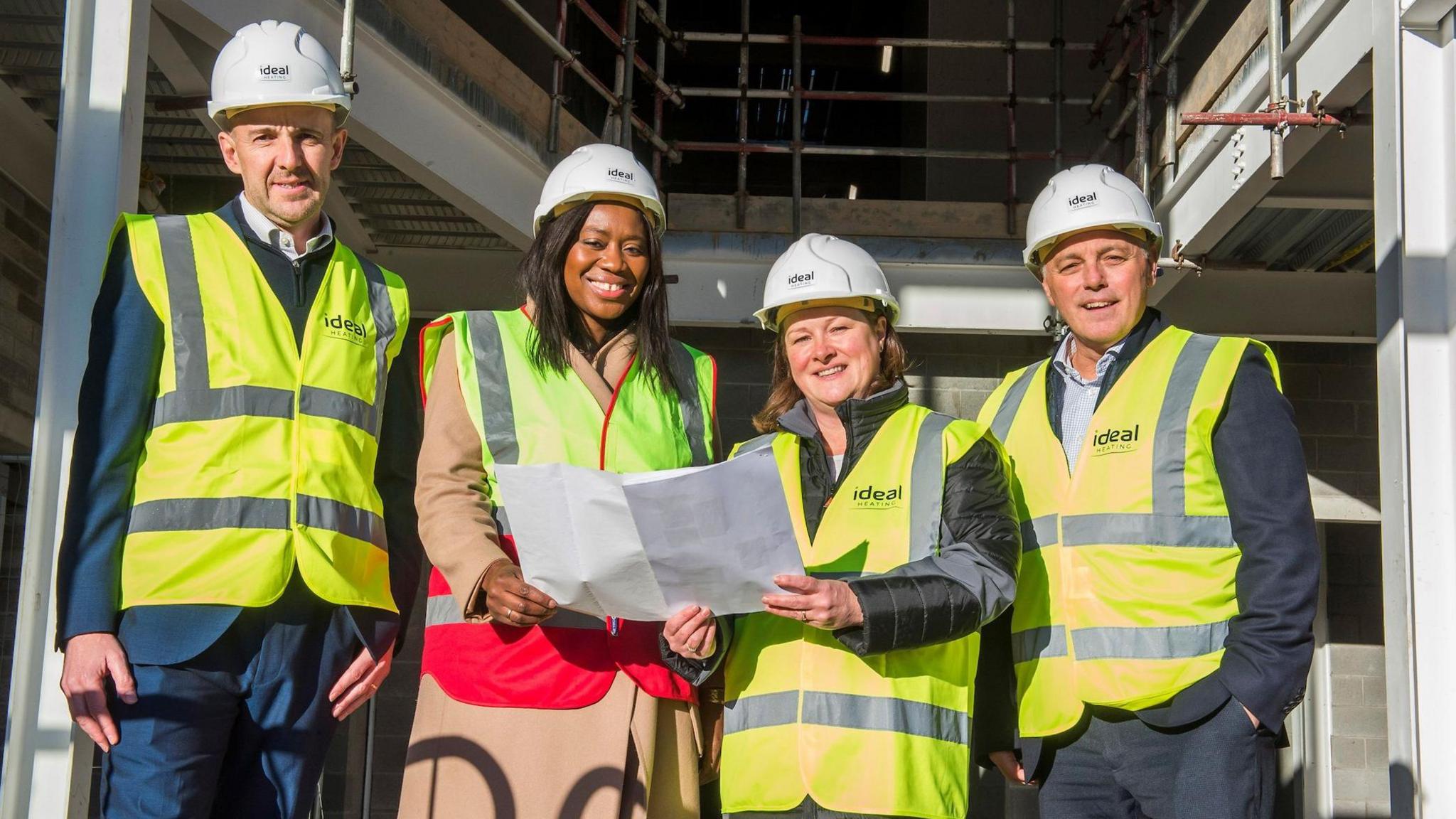MP, minister, mum: Miatta Fahnbulleh's rollercoaster year
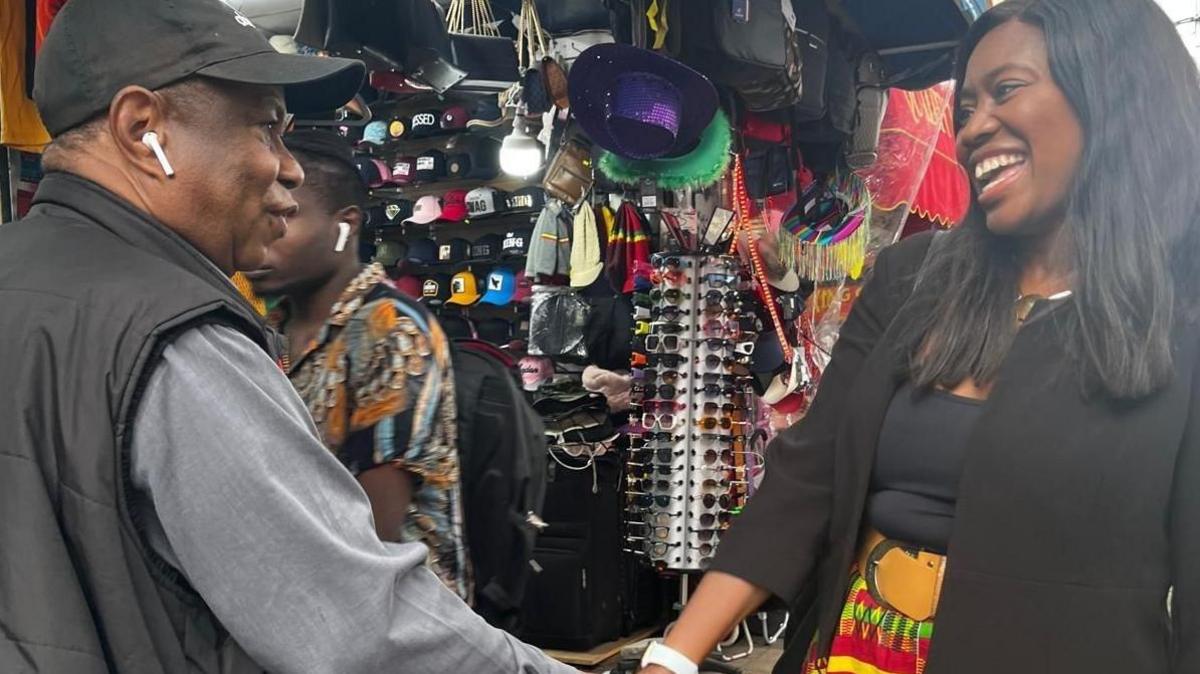
Miatta Fahnbulleh was elected as MP for Peckham a year ago
- Published
"People will judge me about whether they feel they are better off, whether they feel less ground down, whether life feels less hard."
Miatta Fahnbulleh was elected MP for Peckham in the early hours of 5 July 2024, one of 411 Labour MPs returned to the House of Commons in a landslide for Sir Keir Starmer's party.
Less than a week into her new role, she was asked to become a junior minister in the Department for Energy Security and Net Zero.
It's been a rollercoaster year for the 45-year-old, who as well as her constituency and ministerial jobs is mum to three children.
A policy wonk – her CV includes a stint at the Cabinet Office and six years as chief executive of the New Economics Foundation – it was during the pandemic that she started her journey into front-line politics.
"I definitely knew I wanted to go into public policy," she told BBC London.
"I'm an economist by training. And the reason I went into economics is, I think growing up in my community, you see very viscerally how the economy doesn't work for people.
"It was actually in the pandemic that I made the decision that I was going to take the leap from policy-making through to politics, in part because, look, it was a sobering time for all of us.
"I thought the pandemic would be a massive wake-up call and a lot would change - the kind of 'build back better' would be a reality and it just wasn't.
"I thought, you need people that are agitating, campaigning and (who) come up with ideas outside of politics.
"You need people in politics who are trying to drive change, because otherwise it won't happen."
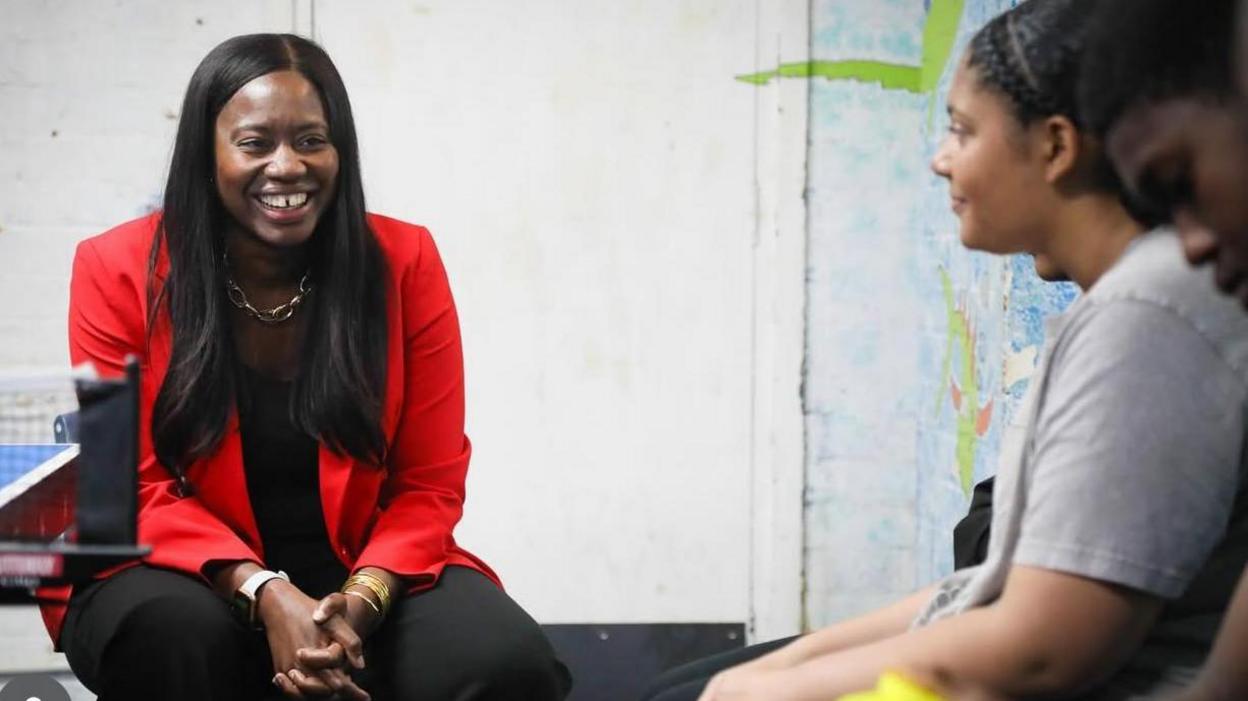
Fahnbulleh was emotional when Labour won after 14 years in opposition
Fahnbulleh was selected for the safe Labour seat of Peckham ahead of the 2024 election. The seat, in south-east London, had been represented by Harriet Harman since 1982.
Fahnbulleh said she was struck by the difference between policy and politics in terms of the reactions of the people she was asking to vote for her.
"You knock on someone's door, they invite you in, and they are willing to share the ups and downs, the good, the bad, the ugly.
"And that's quite a privilege - being able to hear all these stories, and getting a real sense of the amount of hope that people place, and that sense that people desperately want change."
Looking back on election night, Fahnbulleh admits she was emotional when Labour won after 14 years in opposition.
"The polls were good, but you just don't believe it.
"Labour governments don't come around as often as we'd like, and I remember when the exit poll came out I just burst out crying in a way that really surprised me.
"I just couldn't believe it, and it was the fact that it looked like we were on course to win, but just the size of the majority and what was possible with that.
"I remember that really, really vividly. And then from there, going on to the count and just just feeling incredibly proud."
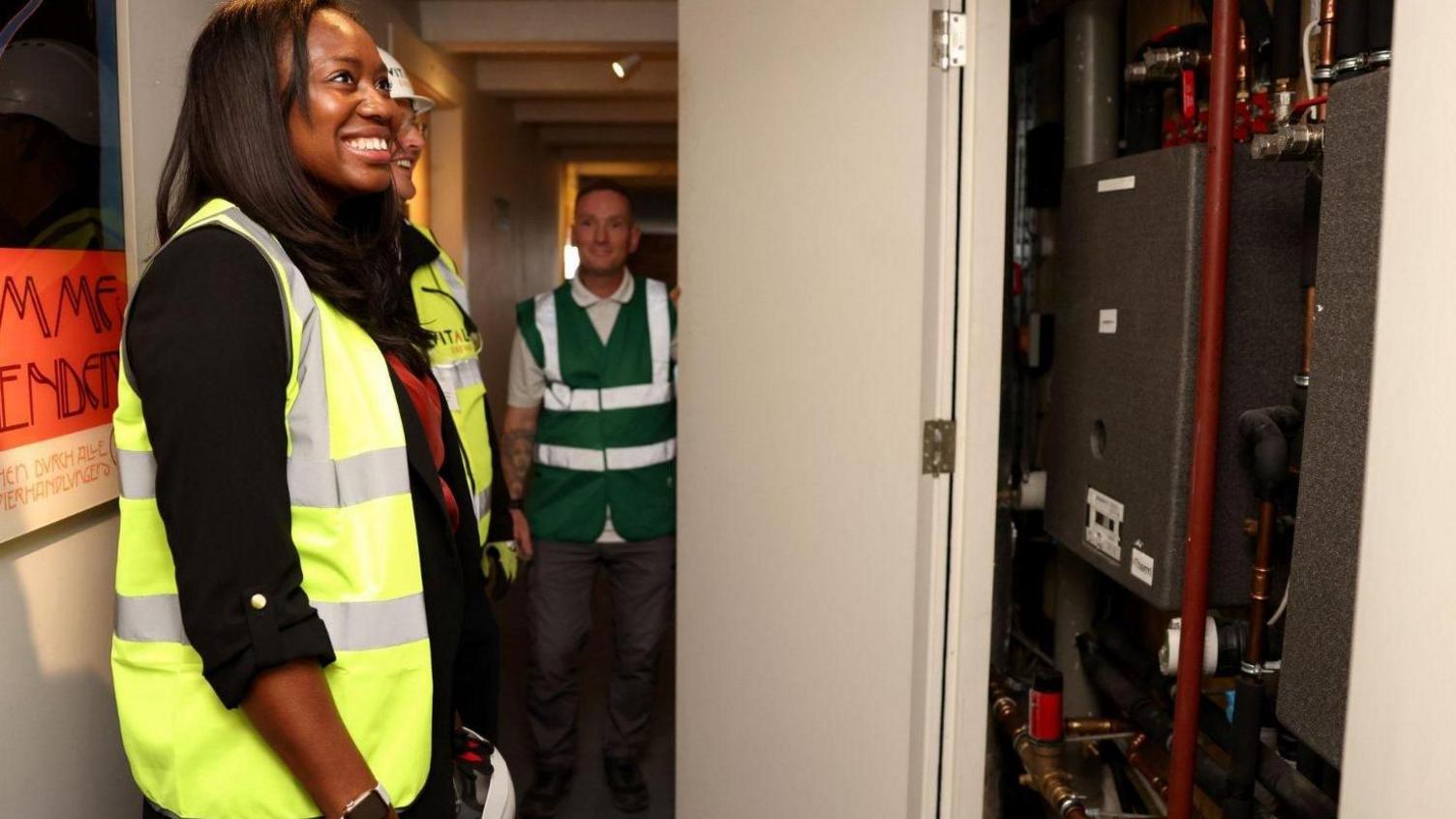
Fahnbulleh says her department is trying to drive the transition to net zero
Becoming an MP is a step change. On day one there are hundreds of constituents asking for help, special interest groups trying to lobby you, and you have to find staff and an office, as well as navigate the vast parliamentary estate.
"At the time I was trying to set up a new office, trying to build my constituency infrastructure, trying to not get lost in the Houses of Parliament, which I still do.
"So you've got all of that - trying to think about how you juggle being a good mum, because you know that is the first job - with suddenly not being around in the evenings. You're in the House until after the kids are put in bed."
Then she was contacted by the government's enforcer and chief disciplinarian.
"I got a message from the chief whip saying that he wanted to speak to me, and I have to say my first reaction was like, 'Oh, what have I done? What have I been up to? What have I got wrong already?'
"So the chief got in touch and said, 'Look, the prime minister would like to offer you this job' and I think the first thing I said was 'really?'
"But of all the jobs I could have been offered it's a huge privilege - and to be asked so early on, a new MP still finding my feet."
Fahnbulleh says her department "is trying to drive the transition to net zero, which I believe in".
She is responsible for dealing with fuel poverty, the warm homes plan, the energy price cap and smart meters.
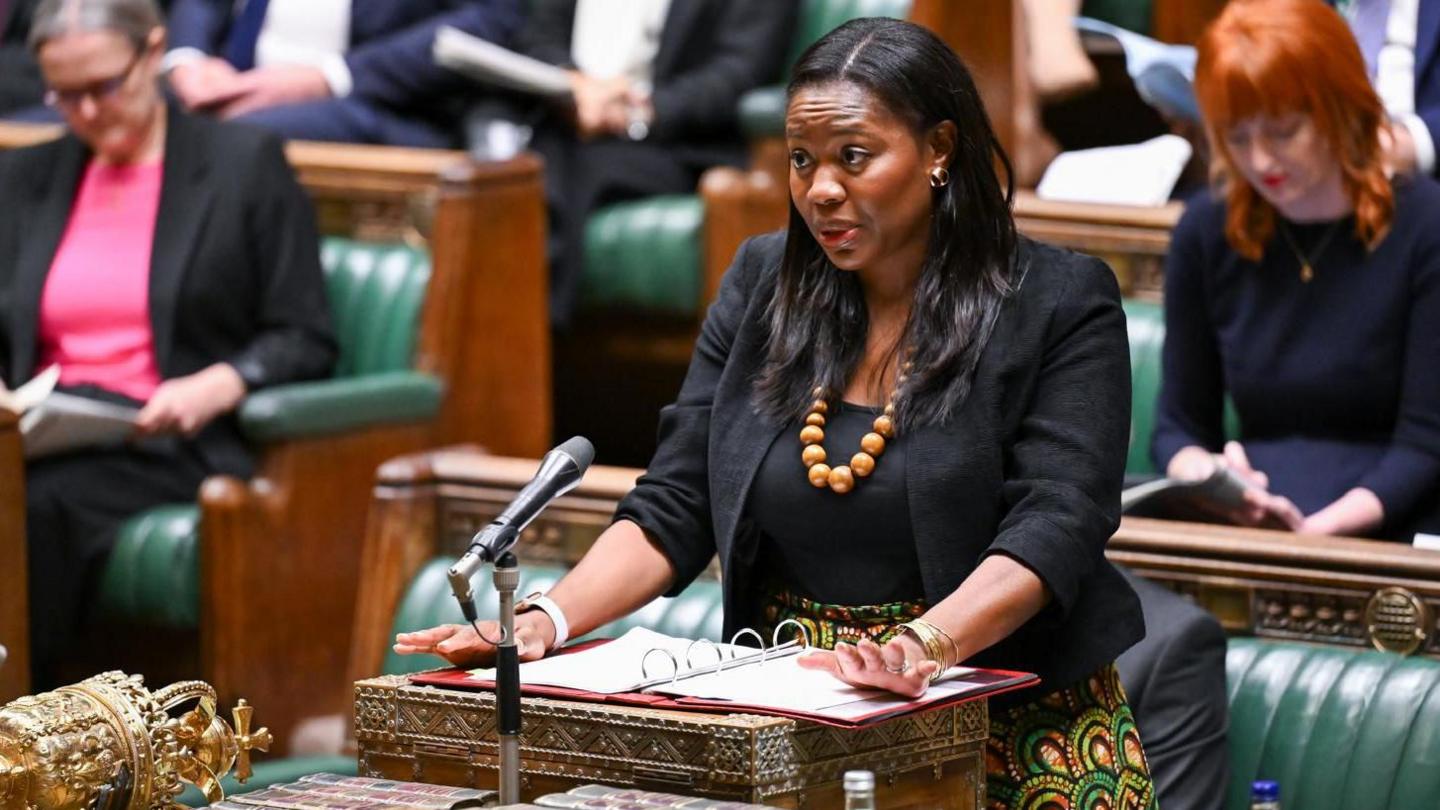
Fahnbulleh says in government she deals with the issues she encounters in Peckham
Her brief concerns "how we drive down energy bills so that we have an impact on the cost of living, how we upgrade people's homes, making them warmer and cheaper to run".
She says these "bread-and-butter issues" are what she sees when she walks around her Peckham constituency.
"You're going into people's homes, you can see the impact of that. People are struggling, they're under pressure. Homes are not of a good enough quality.
"And I'm like, well, if I have the opportunity to have an impact on that, I'm just going to run it."
Her department is led by Ed Miliband, a fervent believer in the net-zero policy.
Fahnbulleh is a fan, calling her boss "a genuinely good guy, and he treats his team with such care and decency, and he's hilarious. He does it with so much energy and love for the job. And it's infectious."
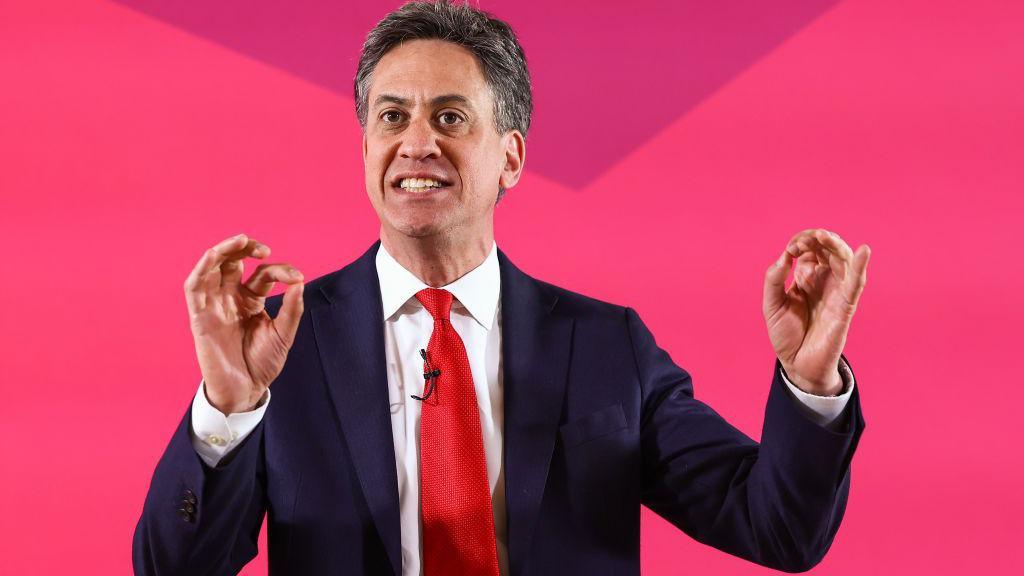
Ed Miliband is Fahnbulleh's boss
Housing, safe and accessible spaces for Peckham's youth and creating economic opportunities locally are the three issues she wants to be judged on at the next election.
"Sixty to 70% of my casework is housing, and that's both affordability of housing, but it's also overcrowding. We don't have enough homes. People are stuck in homes where you've got lots of, you know, growing family and one or two-bedroom flats.
"Some of our homes here in Peckham, people let you in and it just breaks your heart.
"In the sixth-richest country, this is what we're providing. So housing and improving housing is number one."
Fahnbulleh says young people tell her that "we don't feel like we have places that are our own where we can go, we can grow, we can feel safe".
She adds: "I want every kid to be able to walk to provision when they're not in school, so they have somewhere to be."
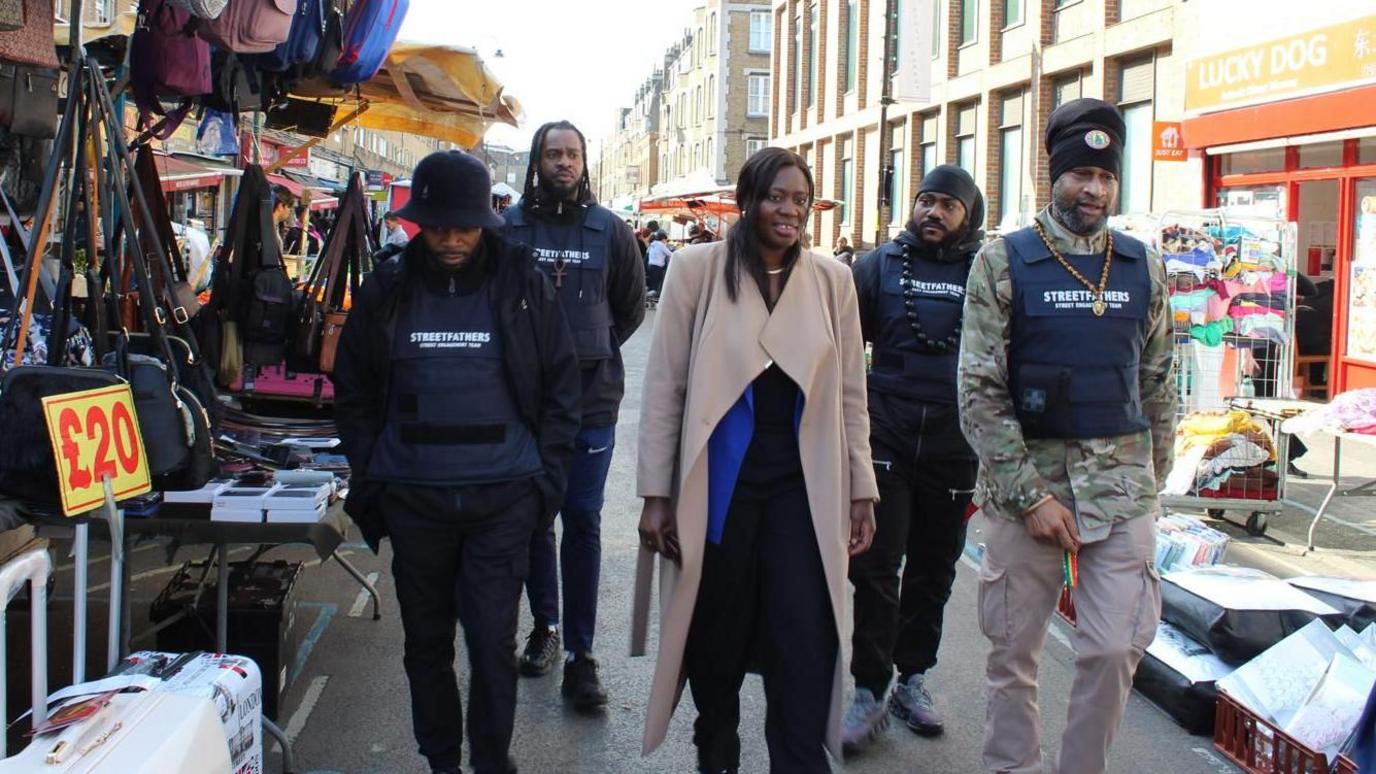
Fahnbulleh says if people recognise her "they give me a big hug"
Fahnbulleh says ultimately voters "judge us by our actions".
"I'm aware that politicians don't have the best of raps and the thing that has been warming is the amount of warmth that you get in the community.
"If people recognise me, they give me a big hug and they'll say thank you. And that keeps you going. So when it feels hard, you think: 'I'm doing it for these people.'"
While it's a question rarely asked of male politicians, Fahnbulleh acknowledges that handling both a career and parenthood is a challenge.
"At least my constituency is in London, my family is in London, so I get to see them.
"Throughout my career, I have never missed any sports day. I've never missed any of my kids' plays, I've never missed any prize-giving, and I made a promise to myself that I would always do those things.
"And a year on, I've kept that promise and I intend to continue keeping it. And then it's just you just have to do the juggle and it is hard.
"But all of the jobs are a privilege and you have to keep reminding yourself of that when it all feels quite a lot - you just keep juggling."
Listen to the best of BBC Radio London on Sounds and follow BBC London on Facebook, external, X, external and Instagram, external. Send your story ideas to hello.bbclondon@bbc.co.uk, external
Related topics
- Published9 July 2024
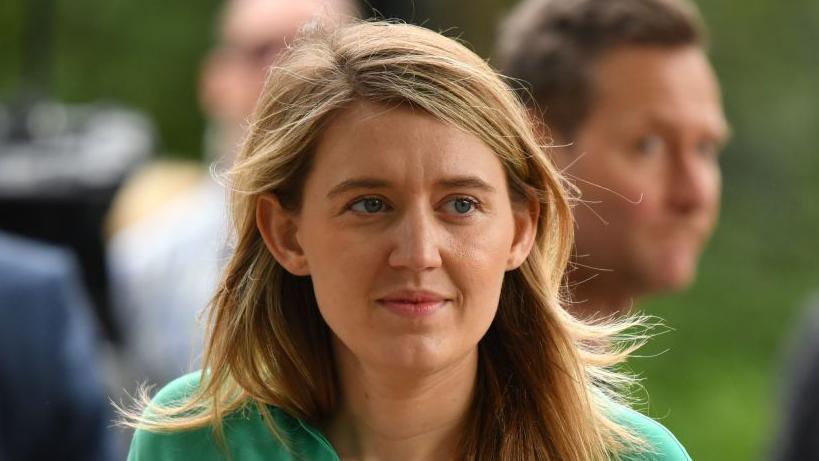
- Published28 August 2024
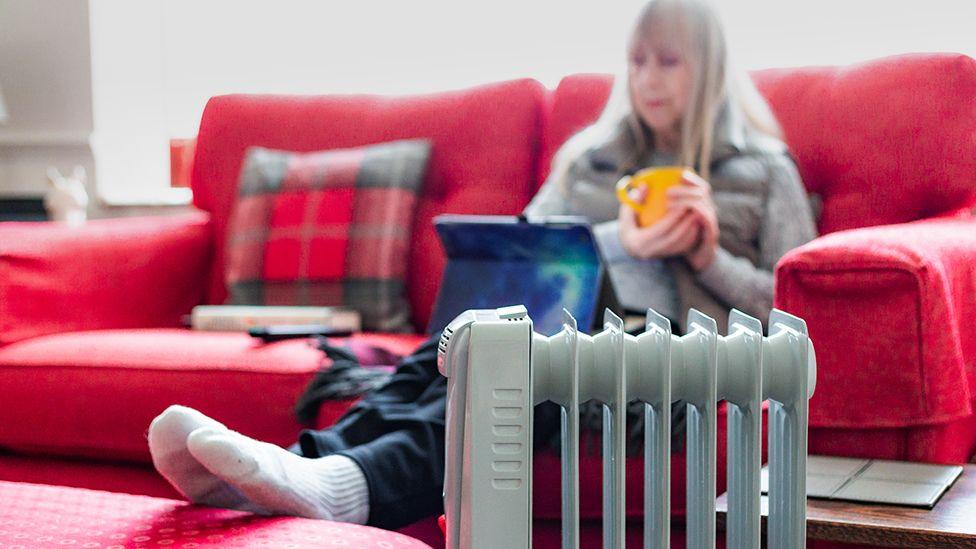
- Published21 November 2024
